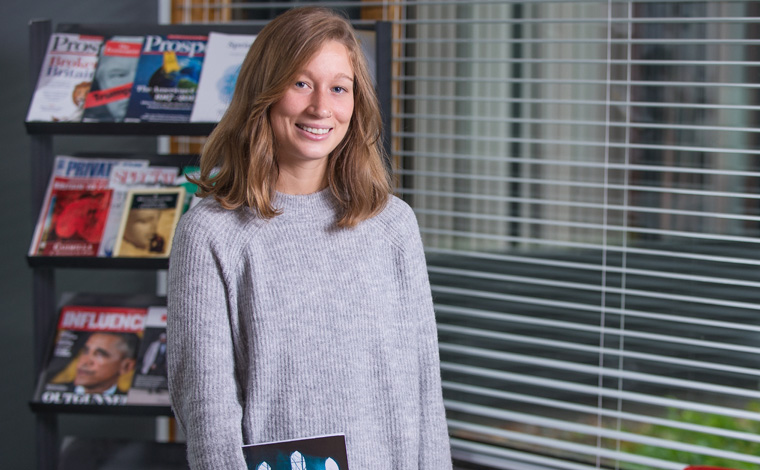How to apply
Follow these steps to apply for a research degree at Stirling.
Step 1: Develop your research proposal
Before applying for a research degree, it’s important that you have a clear idea of what you would like to research, what you hope to achieve, and how you plan to achieve it. Your research proposal is your chance to lay out all of these details as part of the application process.
A research proposal should include a background, rationale and context as to why you want to undertake your research, as well as detailing clear aims and objectives. The proposal should also include more detail about your expertise, methodology and how you will approach your study.
For guidance on how to produce a good research proposal, you can take a look at our guidance on writing a research proposal.
You’ll submit your research proposal as part of the online PhD application form.
Step 2: Choose a subject area
Once you’re confident you have a good core idea for the research you’d like to carry out, you should identify the subject area your research will fall under.
Our PhD subject areas page shows the broad topics we offer supervision in, but we appreciate that every PhD is an original idea and may not sit neatly under a single subject area. You should apply for the area that seems most relevant to your research proposal, and we can always reallocate applications to the most suitable subject area after you apply.
Supervision
Before starting the application process, we recommend that you try to identify a supervisor who you would like to guide and mentor you during your studies. By using our Find a Supervisor tool, you can search for members of staff operating in your chosen field and make contact with them to check their availability and discuss your research proposal.
You can still apply for a research degree without naming a supervisor in your application form, but making initial contact with one of our experts can be a helpful way to ensure your application is as strong as possible.
Step 3: Apply
You can apply for a research degree on our PhD subject areas page. Just select the relevant subject area and click the apply link.
The application form will ask you for a range of information and documentation, including your research proposal, how you plan to fund your studies, proof of qualifications, an academic reference and a CV.
If you’re applying for a PhD in English Studies, Publishing Studies, French, Linguistics, Religion, Spanish, Translation Studies, Global Cinema or Creative Writing, you’ll also be asked to upload a writing sample – see our supporting documents guidance for more information.
You can save your application form progress at any time, so even if you don’t have everything you need to hand right away, you can come back and fill in the blanks later.
If you meet the initial entry requirements, the Admissions Office will pass your application to Faculty for academic review. You will also receive an email with details of how to access the applicant portal and track the progress of your application. We look forward to hearing from you.

